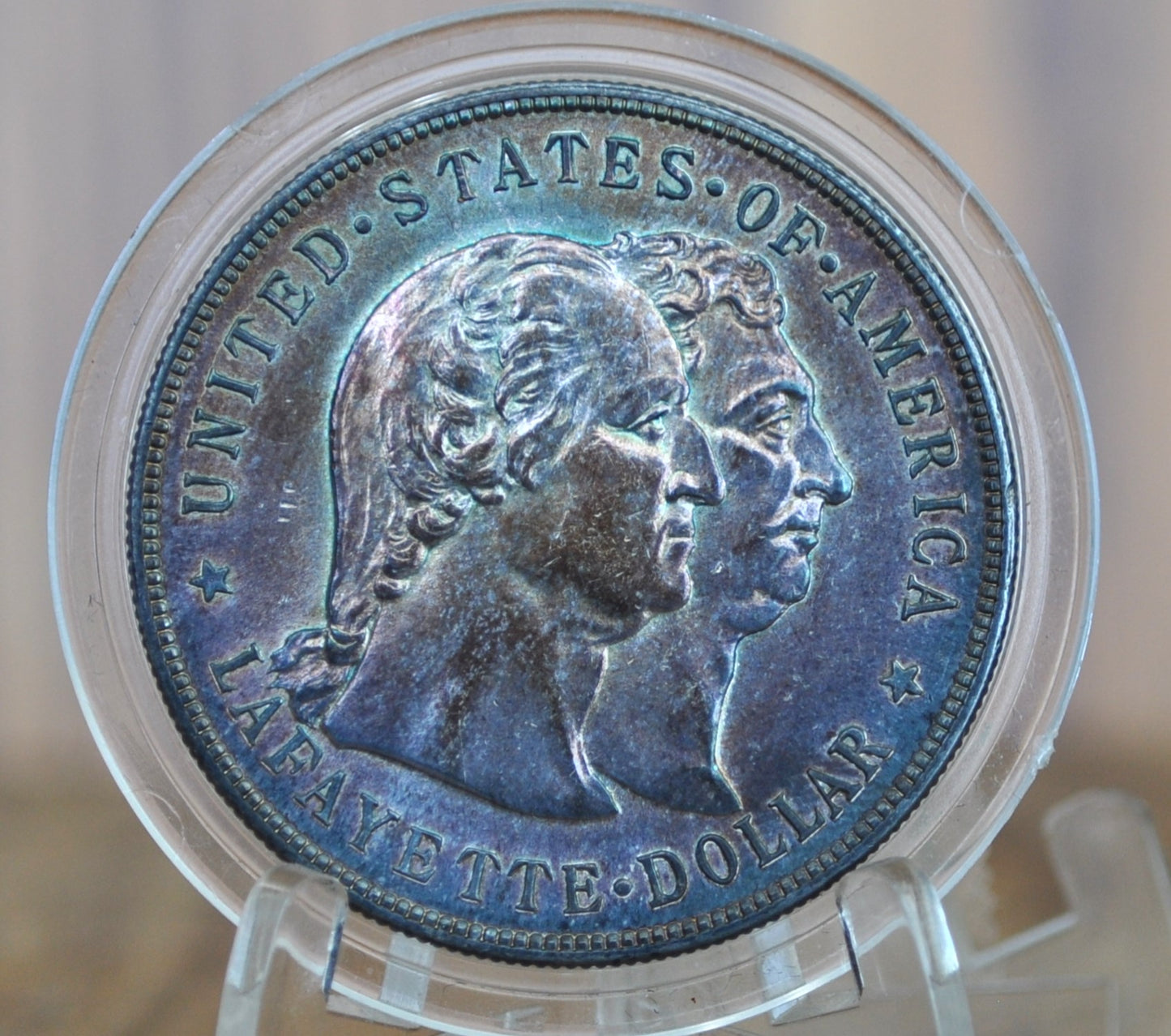Authentic 1900 Lafayette Dollar - AU+, Cleaned, Great Color - Rarer Early US Commemorative - 1900 Lafayette Silver Dollar
Authentic 1900 Lafayette Dollar - AU+, Cleaned, Great Color - Rarer Early US Commemorative - 1900 Lafayette Silver Dollar
This listing is for the photographed 1900 Lafayette Silver Dollar.
Notes on grade / condition: This is a raw coin. It is authentic. The detail and luster lend themselves to a grade of AU58 (very close to MS60). We are unable to determine if the toning on the coin was artificially produced, or happened naturally over time. However, cleaning lines can be seen with a strong enough loupe. It is still a beautiful and valuable specimen of this coin type. As always, please feel free to send us a message with any questions.
About the Lafayette dollar:
The Lafayette dollar was a silver coin issued as part of the United States' participation in the Paris World's Fair of 1900. Depicting Gilbert du Motier, Marquis de Lafayette with George Washington, and designed by Chief Engraver Charles E. Barber, it was the only U.S. silver dollar commemorative prior to 1983, and the first U.S. coin to depict American citizens.
Beginning in 1898, prominent Americans sought to erect in Paris a monument to Lafayette, a Frenchman who fought in the American Revolutionary War. Among these supporters was Chicago businessman Ferdinand Peck, whom President William McKinley chose as commissioner-general to the exposition. Peck made the monument proposal a part of the American plans for Paris, and appointed the Lafayette Memorial Commission to raise funds for it. A part of this fundraising was the one-dollar commemorative coin, approved by Congress on March 3, 1899.
Conjoined busts of Washington and Lafayette appear on the obverse. Barber stated that the bases for his work were a sculpture of Washington by Jean-Antoine Houdon, and an 1824 medal of Lafayette by François-Augustin Caunois. For the reverse, he used an early sketch of the planned monument, designed by Paul Wayland Bartlett, whose last name appears on the base of the statue on the reverse. The coins did not sell out, and 14,000 were later melted by the United States Treasury. The Lafayette dollar is valued from several hundred dollars to tens of thousands, depending on condition.
Não foi possível carregar a disponibilidade de recolha










